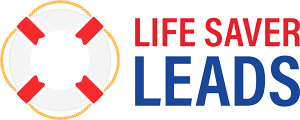Customer Relationship Management (CRM) plays a crucial role in comprehensive lead data management for companies like Life Saver Leads. Here are several ways CRM contributes to effective lead data management:

- Centralized Data Storage:
- CRM systems provide a centralized repository for storing all lead-related information. This includes contact details, interactions, purchase history, and any other relevant data. This centralized storage ensures that all team members have access to the most up-to-date and accurate information.
- Lead Segmentation:
- CRM allows for the segmentation of leads based on various criteria such as demographics, behavior, or engagement level. This segmentation enables targeted marketing efforts, allowing Life Saver Leads to tailor their approach to different groups of leads.
- Lead Tracking and Monitoring:
- CRM systems enable the tracking and monitoring of lead activities and interactions. This includes tracking emails, calls, and website interactions. This information helps the team understand lead behavior, preferences, and engagement levels, facilitating more personalized communication.
- Automation of Processes:
- CRM systems often come with automation features that help streamline lead management processes. This can include automated lead scoring, follow-up reminders, and email campaigns. Automation ensures that leads are engaged at the right time with relevant content.
- Integration with Marketing and Sales Tools:
- CRM can integrate with various marketing and sales tools, creating a seamless flow of information across different platforms. Integration ensures that data is consistent and eliminates the need for manual data entry, reducing the chances of errors.
- Improved Communication:
- CRM enhances communication within the team by providing a centralized platform where team members can collaborate and share information. This ensures that everyone involved in lead management is on the same page and can access the latest information about leads.
- Data Analytics and Reporting:
- CRM systems offer robust reporting and analytics features. Life Saver Leads can leverage these tools to gain insights into lead performance, conversion rates, and the effectiveness of different marketing strategies. Analyzing this data helps in making informed decisions for optimizing lead management processes.
- Customer Retention:
- Beyond lead generation, CRM helps in customer retention by maintaining a comprehensive record of customer interactions. This historical data can be used to identify upsell and cross-sell opportunities and to provide personalized customer support.
In summary, CRM is an integral part of comprehensive lead data management for Life Saver Leads. It facilitates efficient organization, segmentation, tracking, and communication, ultimately contributing to improved lead conversion rates and customer satisfaction.
Recent Comments